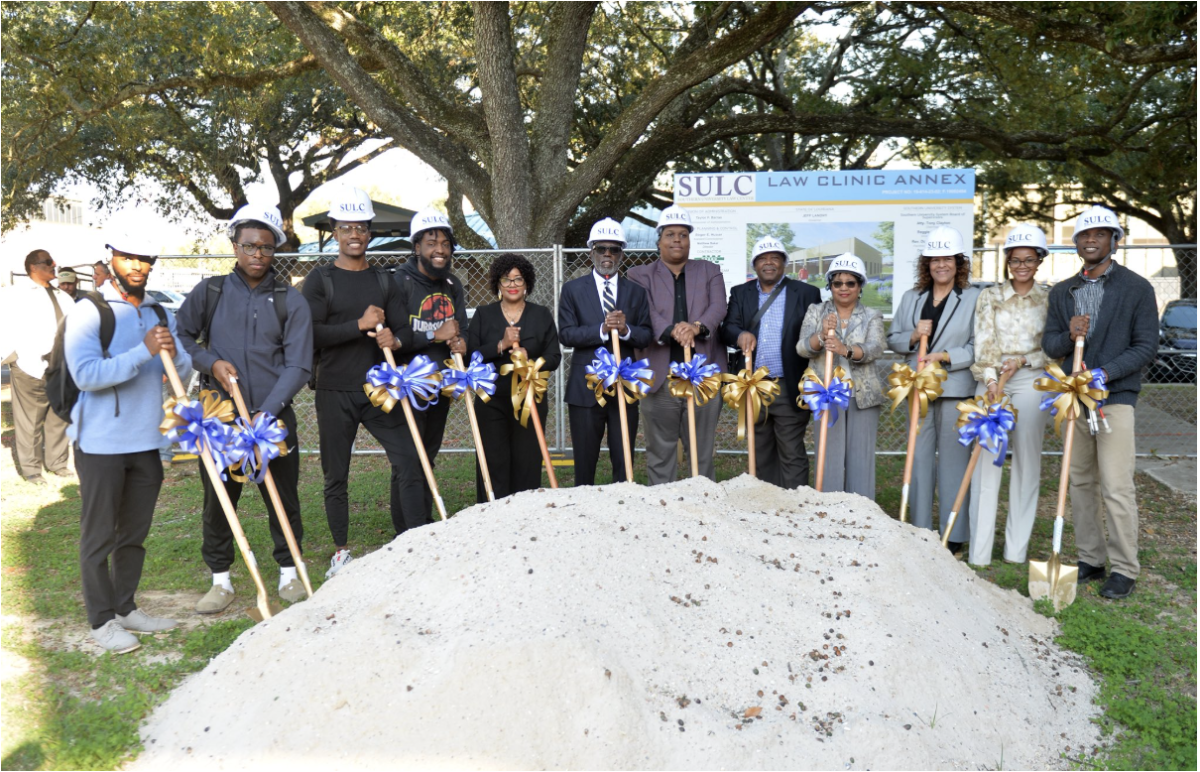With alarming numbers of people contracting HIV and AIDS, studentsacross the country held events for National Black Student Day of Awareness onWednesday. The Southern Digest and the Alpha Tau Chapter of Delta Sigma ThetaSorority Inc. held a town hall meeting in the Lakefront area of the Smith-BrownMemorial Student Union to heighten awareness on campus.
According to the Centers for Disease Control and Prevention, thetransmission of Human Immunodeficiency Virus (HIV) is spreading throughout theUnited States, especially the southeast region. More than 21,000 black peopleare living with AIDS in the U.S. and Baton Rouge ranks No. 2 in the nation forthe highest rate of AIDS cases in a metropolitan area and No. 7 for HIV cases.
”People our age don’t thinkthey have AIDS. It is important that they are aware of the virus,” said RenaMallet, senior from New Orleans and computer science major.
The panel for the town hall meeting included Tina Lee, an AIDS peercounselor and public speaker; A.J. Johnson, director of the Baton Rouge AIDSSociety; Tarsha A. Donnatto, an HIV health educator of New Orleans; andAngelita H. Brown, HIV prevention coordinator. Students and panelists discussedsexual activity, religious opinions and other topics.
“It doesn’t matter if you are a Southern Jag — HIV can happen to you,”said panelist Tina Lee, a Southern University alumna who is living with AIDS.
Lee contracted the virus from her ex-fiancé approximately six years ago.
“I had the mentality I am clean — it’s not going to happen to me, but itdoes,” she said.
Having AIDS is strenuous and can create a lot of adversities, but Leesaid it doesn’t keep her down.
“It is not easy some days, but I know I can make it through,” she said.”If I think about some of the things I go through that is negative I would gocrazy.”
The other panelists were just as open and candid as Lee in thediscussion.
“It is not about getting good booty, it is about getting safe and goodbooty,” Brown said.
The panelists agreed that abstinence is the only way to be 100 percentsure HIV is not being transmitted. Having sex with an infected person mostcommonly spreads the disease.
“If you have sex with someone that has HIV you are three times morelikely to get HIV,” Johnson said.
The panelists also urged everyone to get tested, regardless of thepresence of symptoms. “Fifty percent of the time you don’t have symptoms,”Johnson said.
It usually takes approximately six months after having sex with aninfected person for HIV to surface.
“You do something in January, you have to wait the whole spring semesterand July,” Johnson said.
According to Brown ignorance is one of the biggest problems and it couldbe why AIDS is spreading.
“Ignorance is very prevalent in groups and there are a lot ofmisconceptions,” she said.
AIDS cannot be contracted through hugging, sharing food, close casualcontact or insect bites.
Condom storage and usage was also a topic discussed in detail. Accordingto Johnson, the life of a condom is three to five years, only if they are notsubject to hazardous conditions.
L.I.F.E. AIDS (Leaders in the Fight to Eradicate AIDS) distributedT-shirts asking, “got AIDS…How do you know?” and armbands to black collegecampuses across the nation. The group has campus chapters that strive toeffectively educate black college students about the causes and effects of HIVand AIDS.
The student organization is partnered with the Black AIDS Institute, theMagic Johnson Foundation and the Centers for Disease Control.
“We at L.I.F.E. AIDS feel that the T-shirt design is not only aneye-catcher, but an eye-opener,” said Janene Tate, editor in chief of theDigest and L.I.F.E. AIDS steering committee member. “The promotion and theseevents have been a huge success at a number of schools.”
Crystal Manuel, a senior political science major from Eunice, said thatHIV and AIDS are topics that warrant open discussion.
“People our age don’t realize how serious the AIDS epidemic is,” Manuelsaid. “Anybody can contract AIDS it doesn’t matter if you are fine, pretty,wealthy or poor — you are a target.”




